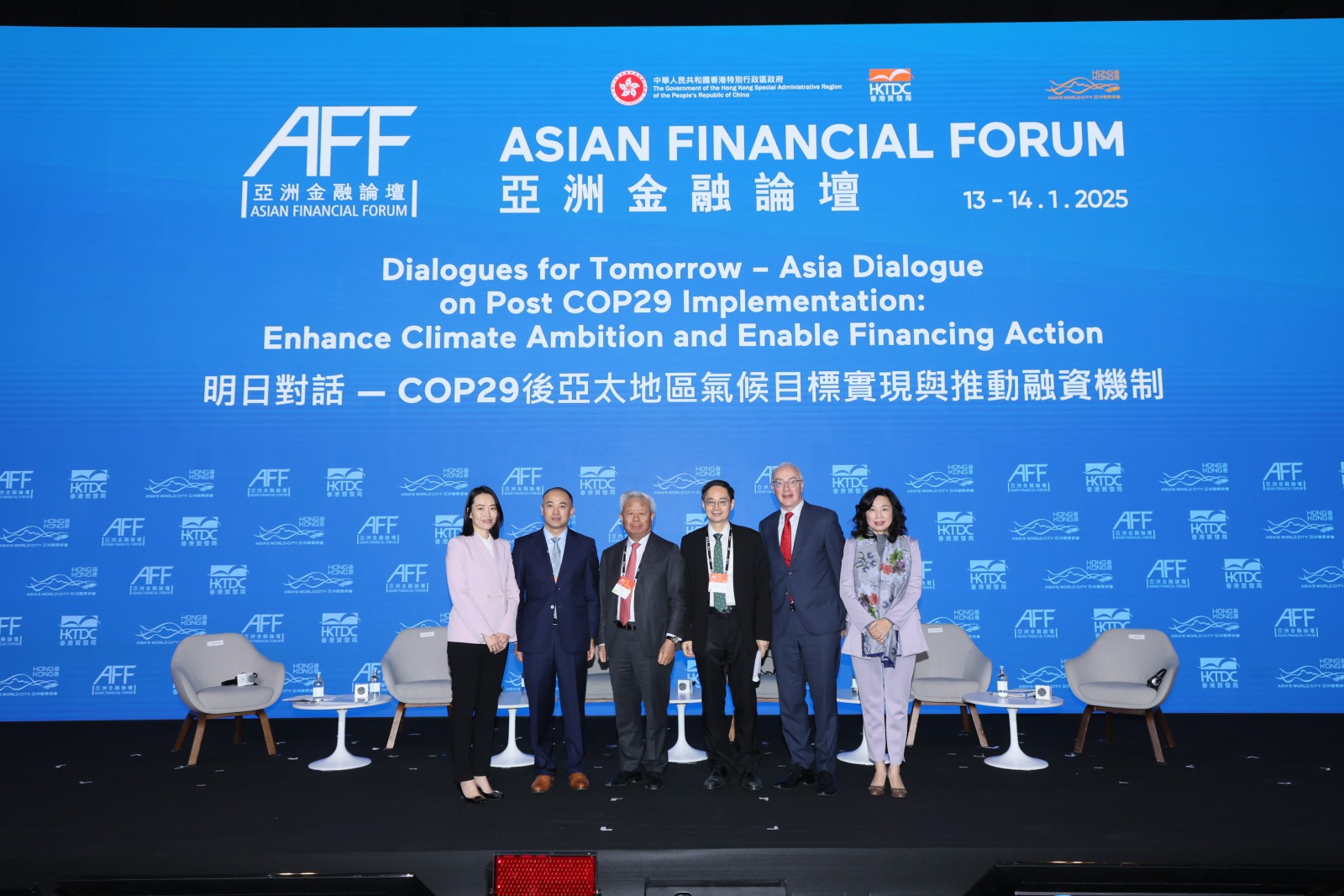
On January 14, Dr. Ma Jun, Chairman of the China Alliance of Sustainable Investments (CASI) and Chairman & President of the Hong Kong Green Finance Association (HKGFA), participated in a panel discussion at the Asian Financial Forum (AFF). The session, titled "Dialogues for Tomorrow – Asia Dialogue on Post-COP29 Implementation: Enhance Climate Ambition and Enable Financing Action," explored innovative financing mechanisms and partnership opportunities to advance climate initiatives. Key topics included transition finance and updates from the recent COP29 in Azerbaijan.
The session start with special remarks by Mr. Liu Zhenmin, Special Envoy for Climate Change of the People's Republic of China. Mr. Liu shared insights on the New Collective Quantified Goal on Climate Finance (NCQG), agreed upon during COP29 in Baku. This goal establishes a baseline of USD 300 billion in annual climate finance from developed countries by 2035, as part of a larger effort to mobilize at least USD 1.3 trillion annually from all sources—both public and private—by the same year. Mr. Liu emphasized the importance of robust capacity-building across countries as a critical factor in achieving this goal.
Following his remarks, a panel discussion took place featuring esteemed speakers, including Dr. Ma Jun; Mr. Jin Liqun, President of the Asian Infrastructure Investment Bank (AIIB); Dr. Yanliang Miao, Chief Economist at CICC; Mr. Michael J. McGrath, Assistant Secretary of the Financial Services Division at Ireland’s Department of Finance; Ms. Salina Yan, Permanent Secretary for Financial Services and the Treasury (Financial Services) of the HKSAR Government; and moderator Ms. Chaoni Huang, Managing Director and Head of Sustainable Capital Markets at BNP Paribas.
Highlights from the Panel
Dr. Ma Jun outlined the key pillars of transition finance, emphasizing the need for a standardized definition of "transition" and the development of effective policies and incentives. He highlighted the importance and value of the Multi-Jurisdiction Common Ground Taxonomy (MCGT), which enhances the comparability and interoperability of global definitions for green and sustainable activities. According to Dr. Ma, the MCGT has the potential to facilitate global green capital flows, particularly to emerging markets.
The panel also discussed the significance of technology transfer and capacity-building support, which are frequently requested by emerging markets. Speakers noted that providing these resources is essential for ensuring a just and effective transition to low-carbon economies. Collaboration and financial support through international mechanisms were identified as key factors in empowering recipient countries to achieve net-zero goals.
The session concluded with a shared understanding that achieving global climate objectives requires innovative partnerships, consistent policy frameworks, and sustainable financing practices. Panellists also emphasized the need to actively engage local stakeholders to strengthen their participation in funding mechanisms and related processes.


